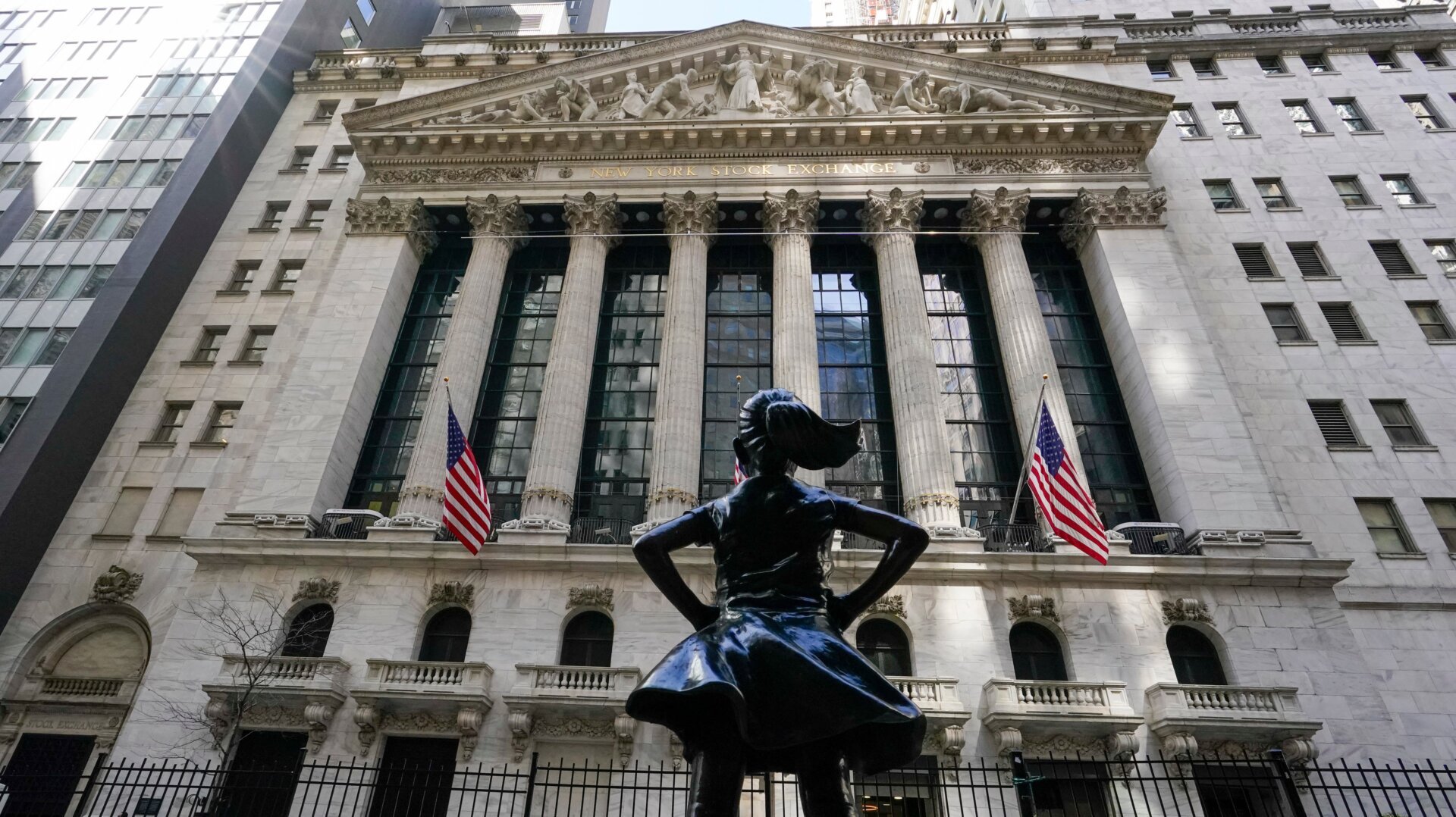Terrible headline. $1T change in market cap does not mean $1T was transacted.
I’m certainly not an expert here, but doesn’t that mean AT LEAST $1t was transacted? Market cap is cost x quantity. Losing $1t market cap is the net change though. Could have had $2t sells and $t buys for a total of $3t in transactions.
Though, the net change matters more.
Market cap is average sale price times the total number of outstanding shares. So with normal trade volumes the market cap swings can far exceed the value of the trades.
Say a company has 10,000,000 outstanding shares and trades at an average price of $100, the market cap would be $1 billion. Let’s also arbitrarily assume that stock has been trading at $100 for a very long time and almost everyone has a cost basis of $100/share. Now a bad news story comes out and 10,000 shares are sold at $90 dollars. The transacted value would be $900,000 dollars and the new market cap would be $900 million. That’s a $100million drop in market cap, but only a $100,000 realized loss for shareholders. Market cap is precisely as volatile as share price and is only useful as a shorthand for nominal value, but should not be used as a measure of total value.
Purchases and Sales are double entry and by definition have to be balanced. 1 billion in sales is always matched to 1 billion in purchases. Unless shares are being created or destroyed.
Huh
TIL
Oh, are they the stocks that “funded” the whole AMD, NVIDIA, OpenAI a while back?
So it begins.

That weird guy who broke housing market bet against AI. That can’t be good for the imaginary worth of something?!


